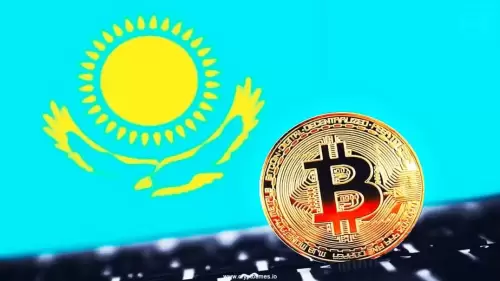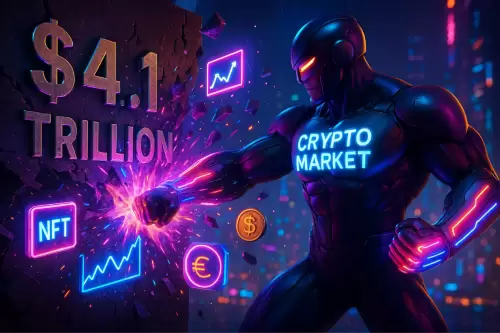Circle's move to become a national trust bank signals a major shift, blurring lines between traditional finance and crypto, potentially reshaping the future of stablecoins and crypto banking.

Circle, Stablecoins, and Crypto Banks: Navigating the New Financial Frontier
The world of crypto is constantly evolving, and the latest development is Circle's ambition to become a national trust bank. This move is more than just a headline; it signifies a potential paradigm shift in how stablecoins and crypto institutions operate within the broader financial system.
Circle's Bold Move: Challenging the Traditional Banking Model
Circle, the U.S.'s largest stablecoin company, is making waves with its application to become a federally regulated national trust bank. This isn't just about managing USDC reserves; it's about challenging the very definition of a 'crypto bank.' Circle plans to directly oversee its USDC reserves through federal banks and even offer custody services for institutions. This strategic move reflects a larger trend: the lines between traditional finance and the crypto world are blurring, and fast.
Why a Trust Bank Charter Matters
Applying for a U.S. national trust bank license allows Circle to streamline compliance across the country, which reduces the headache of dealing with different state regulations. A national charter would let Circle operate under one unified regulatory framework, boosting the efficiency and scalability of its services. The proposed trust bank, First National Digital Currency Bank, N.A., aims to manage Circle's USDC reserves directly, a change from using current custodians. This move also enables Circle to offer custody services for tokenized stocks and bonds, aligning with its strategy to grow its position in the digital asset market.
The Regulatory Landscape: GENIUS Act and Beyond
Circle’s proactive approach comes as the U.S. is increasingly looking to integrate virtual assets into the existing financial framework. The company is preparing for potential changes under the GENIUS Act, a proposed bill designed to introduce stricter oversight for dollar-backed stablecoins. CEO Jeremy Allaire emphasizes Circle's dedication to building neutral, robust infrastructure to support the U.S. dollar’s global role.
The End of 'Debanking'? A Potential Silver Lining
The Federal Reserve's recent decision to remove 'reputational risk' from its examination framework for banks could positively affect crypto. This update aims to make bank assessments more transparent by focusing on concrete financial risks rather than subjective concerns. For years, crypto firms have faced difficulties in securing banking services due to perceived reputational risks, but this policy change might signal a turning point, potentially encouraging banks to re-evaluate partnerships with crypto businesses.
My Take: Circle's Vision and the Future of Crypto Banking
Circle's pursuit of a national bank charter isn't just about compliance; it's a strategic move to legitimize and stabilize the crypto industry. Securing such a license could catalyze further institutional adoption and integration of cryptocurrency solutions within mainstream financial services. It is similar to a company town controlling its own currency, while also managing the funds of those who live there. As a New Yorker, I have seen it all, but Circle's potential trust bank could reshape how regulated stablecoin issuers operate within the U.S. financial system.
The Road Ahead
The OCC's approval process is ongoing, but previous charters granted to crypto-native firms suggest a growing regulatory acceptance of blockchain-based financial services. Keep an eye on this space – Circle's journey could redefine the future of finance. Who knows, maybe one day we'll all be banking with crypto!
Disclaimer:info@kdj.com
The information provided is not trading advice. kdj.com does not assume any responsibility for any investments made based on the information provided in this article. Cryptocurrencies are highly volatile and it is highly recommended that you invest with caution after thorough research!
If you believe that the content used on this website infringes your copyright, please contact us immediately (info@kdj.com) and we will delete it promptly.














































































